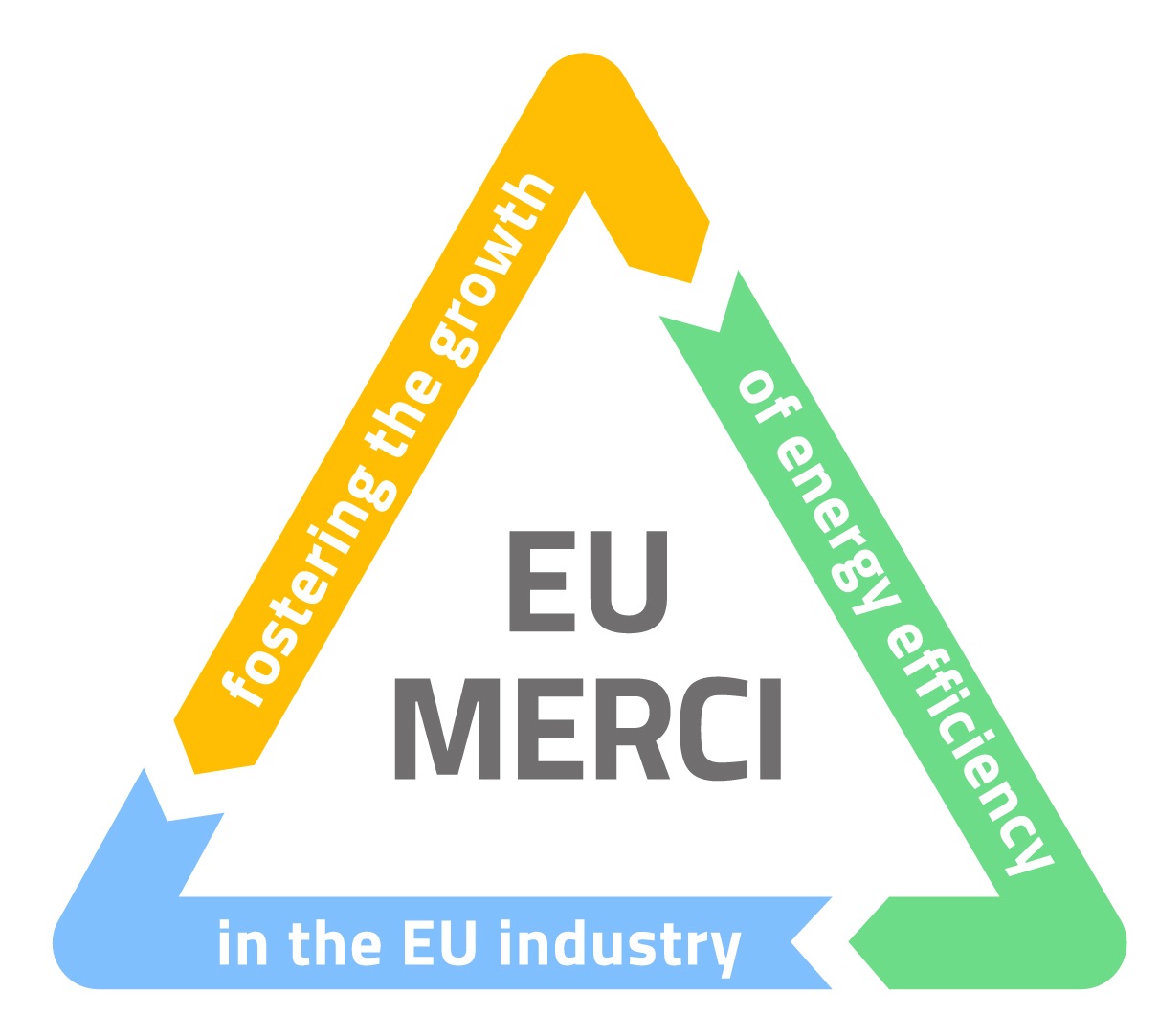EU-MERCI stands for EU coordinated MEthods and procedures based on Real Cases for the effective implementation of policies and measures supporting energy efficiency in the Industry.
Its main aim has been to provide industrial enterprises and policy makers with best practices and tools to increase the competiveness of the EU industry by improving the efficient use of energy.
EU-MERCI has identified good practices of implementation of energy efficiency projects, drawing from the experience of thousands real cases of application of energy efficiency support schemes in Europe, in order to support the effective implementation of the EU Energy Efficiency Directive. The collected case studies, disseminated through an extensive capacity building action, will allow industrial enterprises to catch the opportunities related to energy efficiency actions.
Besides, the analysis of the existing energy efficiency support schemes will help policy makers in designing new support schemes or improving the existing ones. The lessons learnt from countries with consolidated energy efficiency schemes in place will be transferred to countries less advanced. A stakeholder community dealing with industrial energy efficiency policies and actions will be created, to accelerate and facilitate the path toward the 2030 energy efficiency targets.
The main EU-MERCI products and tools:
- library, with energy efficiency good practices divided per manufacturing process phase for the main industrial sectors (cement, ceramic, chemical, glass, food and beverage, iron and steel, machinery, other metals, petroleum refineries, pulp and paper);
- database, with all collected industrial energy efficiency good practices;
- fact-sheets (chemical, food and beverages, iron and steel, petroleum refineries, pulp and paper);
- sectoral analysis;
- country analysis;
- reports.
More information on the EU-MERCI project action and objectives.
